Inside E-WERK Luckenwalde’s ‘Tell Them I Said No’, an art festival at Berlin's former power station
E-WERK Luckenwalde’s two-day art festival was an eclectic mix of performance, workshops, and discussion. Will Jennings reports
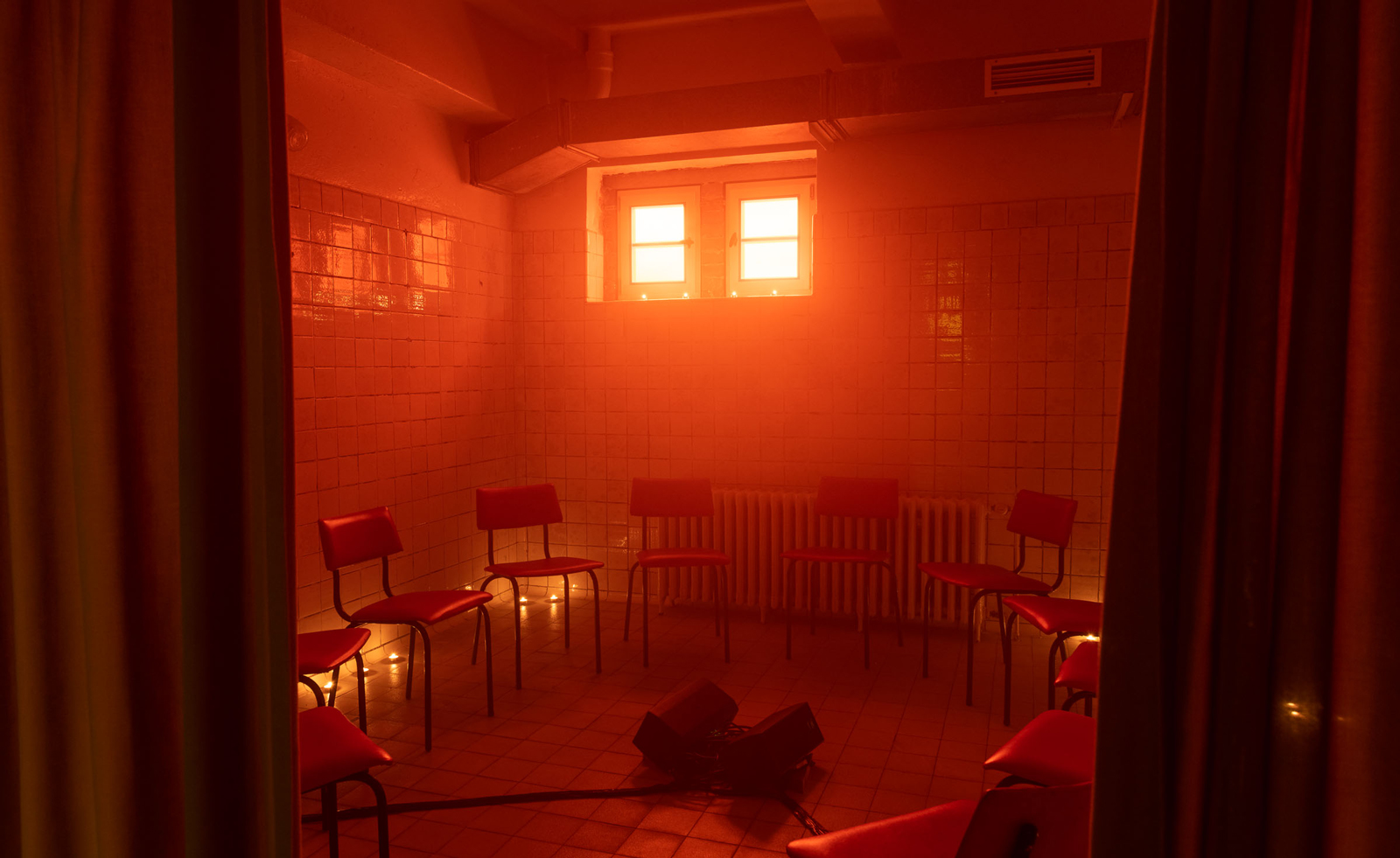
When I arrived at E-WERK Luckenwalde, a former power station half an hour on a train south of Berlin, the place was quiet. Eerily so, for a site soon to open a performance art festival headlined with raucous angst from Pussy Riot. I had been here before, so knew my way around the campus, comprising the power station, the town’s former swimming pool, and the variety of ancillary pavilions and buildings that E-WERK Luckenwalde’s founders – artist Pablo Wendel and curator Helen Turner – had transformed into spaces for experimental culture.
Like me, Wallpaper* had also previously visited. In 2019, when E-WERK Luckenwalde opened with a bang, writer Emma O’Kelly was told by Wendel that the project would be ‘offering art as a power supply’. I confidently strolled straight up the entrance steps of Stadtbad, the swimming pool, and through the double doors to encounter the light-filled Bauhaus hall empty other than for a musician at a piano, filling the space with delicate notes. Immediately, I took out my camera and started recording, a kneejerk reaction to a space and situation I was totally at ease and familiar with. As I completed my panning video, the musician stopped playing to say ‘hello’. I replied, said it was beautiful, then left.
‘Tell Them I Said No’, the title of the two-day festival, was an eclectic mix of performance, workshops, and discussion. Taking its title from an essay series by Martin Herbert, considering artists who had withdrawn from or rejected an art-market-focused art world, the festival – programmed by Turner and freelance senior curator Katharina Worf – sought to explore modes of separation, sustenance and survival.
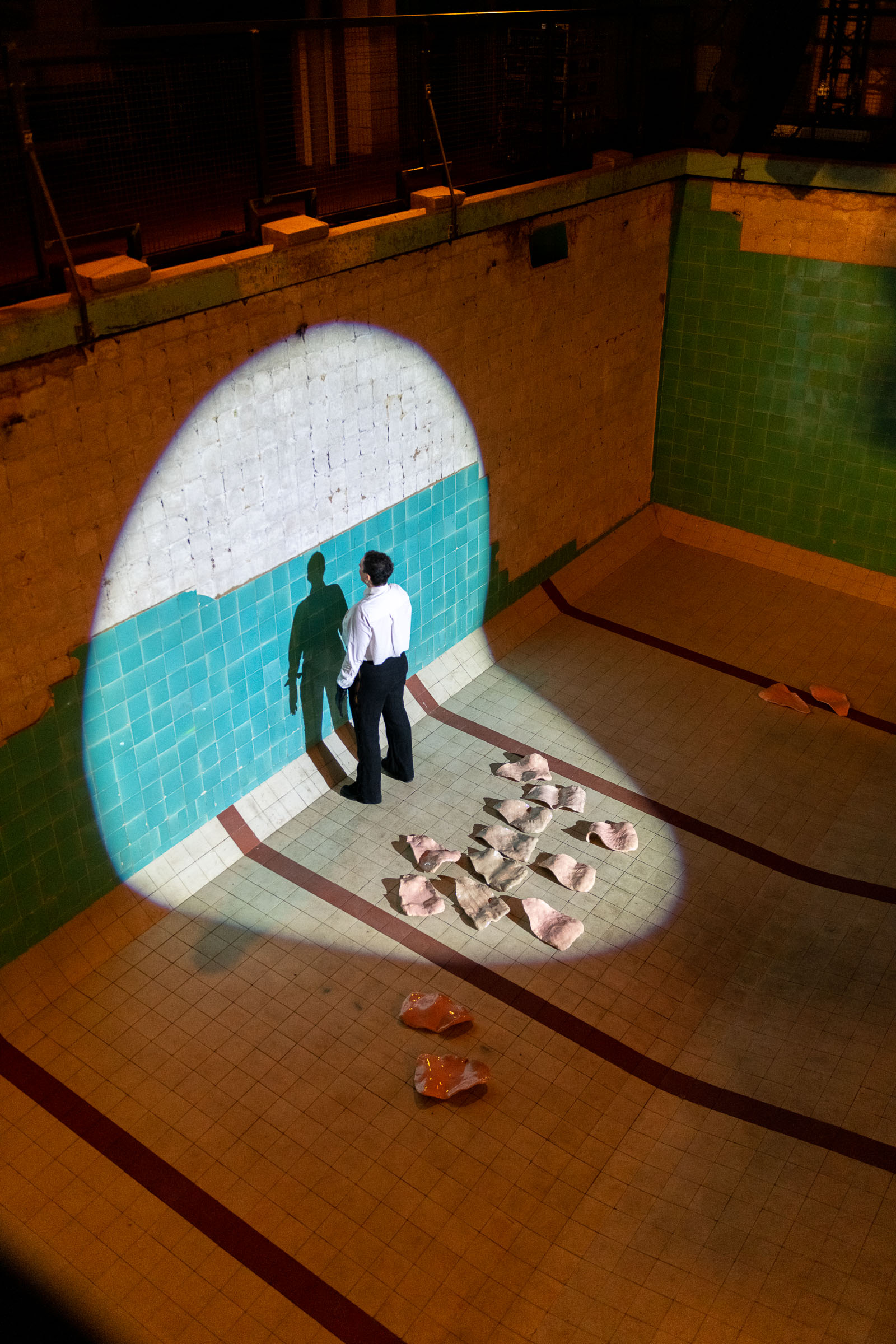
Melanie Jame Wolf, The Promise of Their Body, 3 May 2024, E-WERK Luckenwalde. Commissioned and Presented as part of ‘The Drop Out: Tell them I said No’
Hettie Judah, curator of the current touring exhibition ‘Acts of Creation: On Art and Motherhood’, spoke about the lack of space in a competitive, precarious and constraining art world for caregiving, parents and those who don’t want to conform to a rigid capitalist rhythm. Florence Peake nestled her crotch into that of life- and art-partner Eve Stainton, and without separating, the entangled two then manoeuvred up and down the emptied swimming pool slope for Practice 1, a performance of support, struggle and anxiety that for all its poetic poise, always seemed on the edge of serious injury.
In a discussion on expectations upon being an artist and making work, and the compression into or fight away from conforming neoliberal tendencies, Abbas Zahedi spoke beautifully about his practice as a performance poet in relation to former employment as a medic and community worker. In the art world, Zahedi considers himself a ‘participatory ethnographer’, an outsider less interested in sculpting utopia than engaging with concerns. ‘People think that galleries are where you go and look at things,’ the performer said, then asked ‘but how does that space get converted into something that's more about witnessing, and how can I engender that within the work itself, or require that from the institution or audience?’
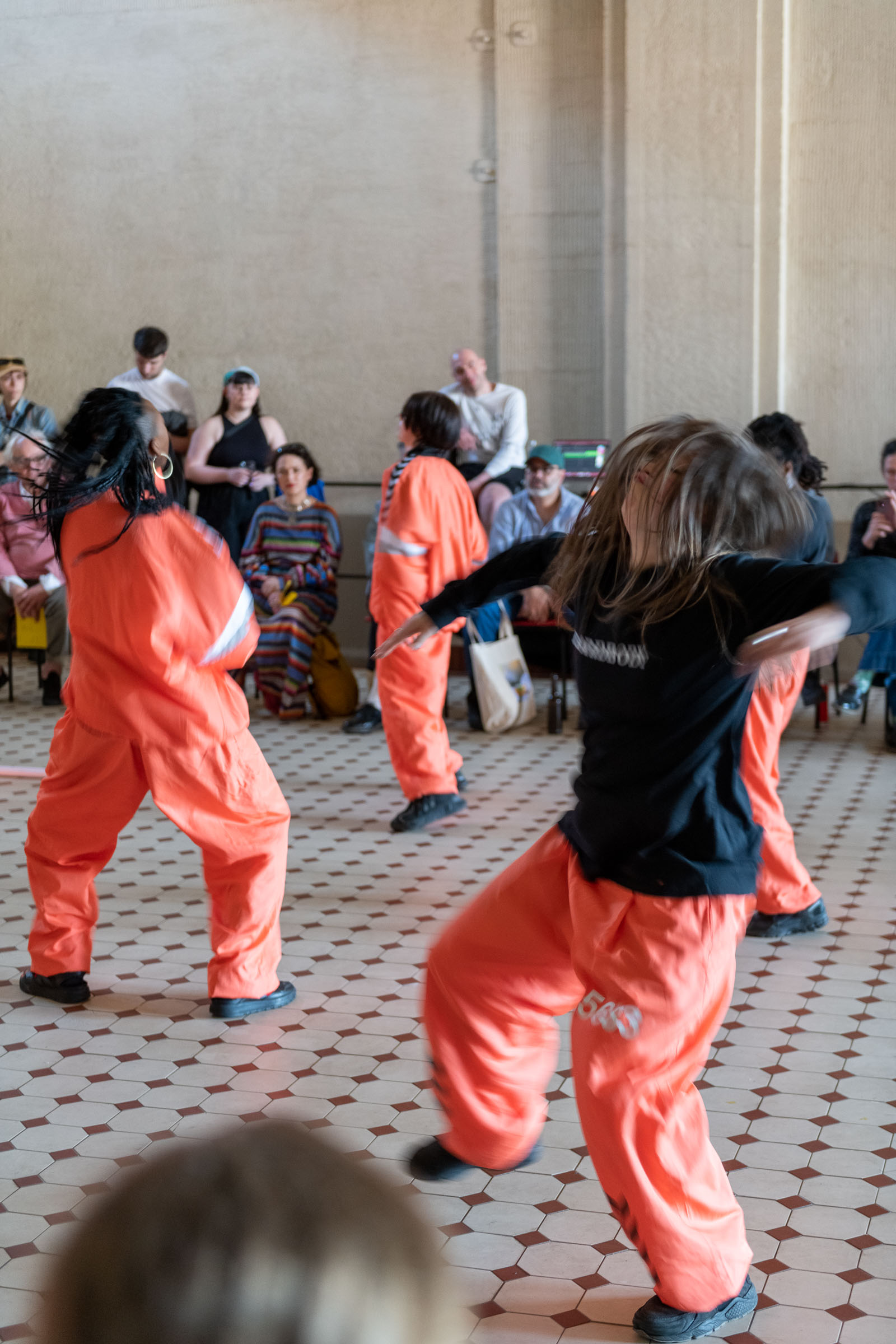
SERAFINE1369, IV, 4 May 2024, E-WERK Luckenwalde. Presented as part of ‘The Drop Out: Tell them I said No’
Eglė Budvytytė’s workshop in collaboration with Fernanda Muñoz Newsome, Some Were Dragged, Some Were Carried, also spoke to the body unceremoniously being taken through space. Training how a pair can alternatively support the movement of another, the work draws inspiration from how authorities drag disobedient bodies away from sites of protest, but here transforms into mutual support and tenderness. Within E-WERK Luckenwalde’s geodesic dome, Asad Raza’s workshop also explored co-dependency and nurture, but with soil – his session training participants how to create a neo-soil, and through it more deeply understand ecosystems and relationships.
On the second day I needed to step away. The football team I had supported for 30 years were playing an important final game of the season in which they could get promoted to the English Premier League. Holed away in Wendel’s office with my laptop and two cans of beer, I watched Ipswich Town’s 2-0 followed by a pitch invasion and outpouring of collective joy. I was happy, though only felt a profound sadness, thinking of how my father would have been so full of life today had prostate cancer not taken him. At that moment, I didn’t want to be staring at a laptop in Luckenwalde, but in that Ipswich crowd reliving memories for and with my father. A sense of grief I don’t think I had felt in the eight years since he died was building inside.
Receive our daily digest of inspiration, escapism and design stories from around the world direct to your inbox.
Back in the power station’s Turbine Hall, SERAFINE1369 presented IV, a dance work lasting for one exact hour. Like a spoken clock, each minute was read out over a glitchy, hauntological soundtrack that conjured the mechanics of the building’s past. Instead of machinery, four dancers adhered to chronological order, then tried to break from it, floating between collaboration and independence before an equilibrium of freedom was found. I held back my tears, just.
After it ended, I tried talking to people about Ipswich’s promotion, its memories and sense of loss, and how witnessing such pleasure could fill me with an empty pain. But, unsurprisingly, the exploits of a small Suffolk football team didn’t seem that important to the down-from-Berlin art crowd, and so I kept it inside, carrying on with the festival programme, staying just on the edge. Regardless, I thought to myself, what I was feeling was sadness, and there are far bigger issues right now in the world.
A panel of Lamis Ammar, Candice Breitz and Zoë Claire Miller discussed Gaza within a world of grief, the art world’s response, and the delicate situation of funding and free speech in Germany – a situation that makes E-WERK Luckenwalde’s political event not only an act of bravery, but perhaps one of defiance. ‘I think there is definitely fear,’ Turner said, ‘but what is the point of having a cultural institution if you can't keep it open and invite people to have discourse – I think that is the priority above everything else.’
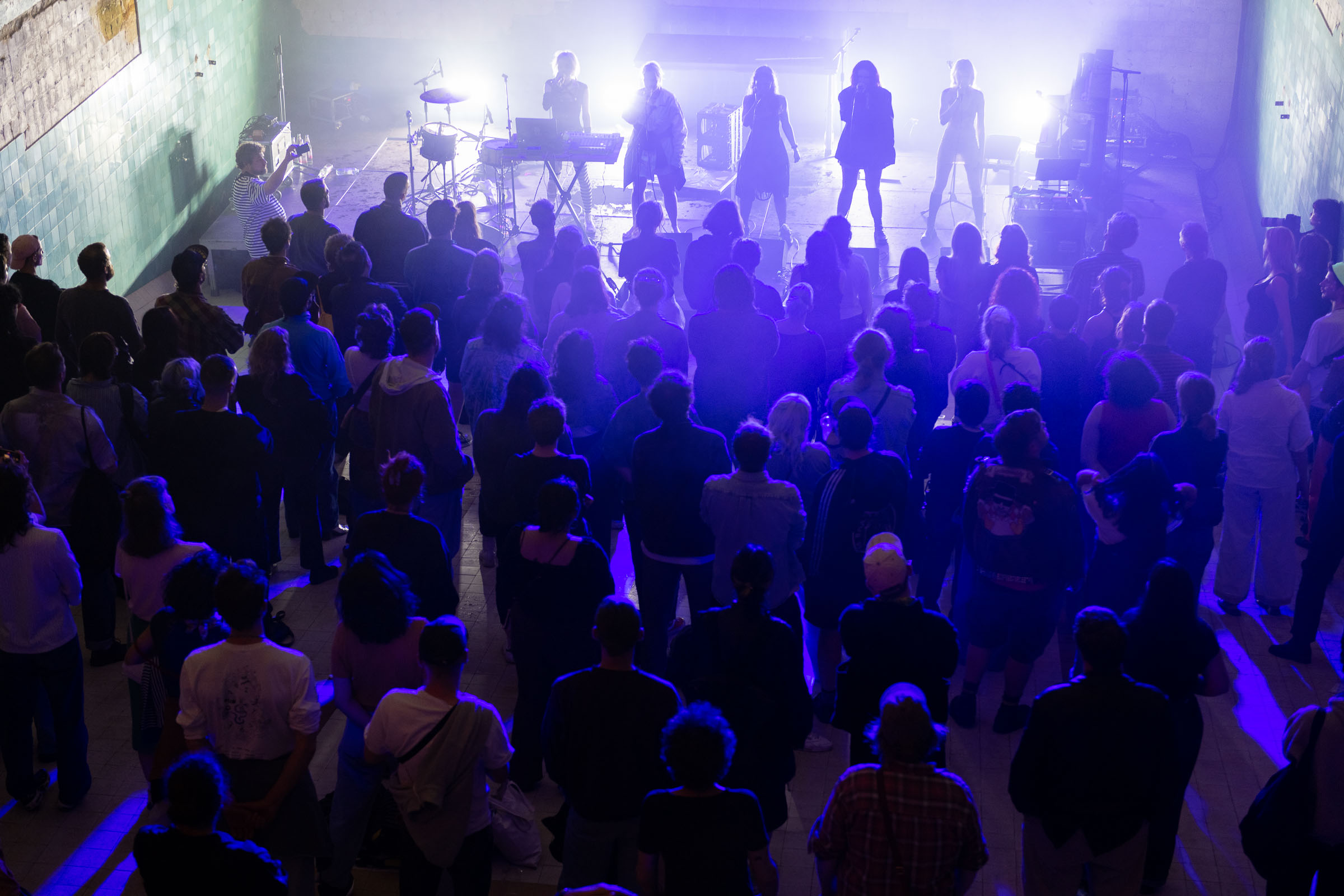
Pussy Riot, Riot Days, 4 May 2024, E-WERK Luckenwalde in partnership with Cultural Foundation Schloss Wiepersdorf, Presented as part of ‘The Drop Out: Tell them I said No’
The final hours of the event comprised performances in the Stadtbad, the empty pool’s slope and two tiers of balconies, creating a perfect auditorium not only for headliners Pussy Riot, but the preceding acts. ‘I got an email that said when life gives you lemons…’ Abbas Zahedi says in his audio-visual performance, using the fruit as a vehicle to explore trauma, time and ancestry. ‘I have been told that speaking of the past is bad form, improper etiquette, so I speak of lemons instead,’ and in speaking through lemons Zahedi turned the Stadtbad into a space of collective grief – for his neighbours from Grenfell, for ancestors we never met, for strangers and for family.
Then, Jjjjjerome Ellis came on to perform the poetic Aster of Ceremonies. Clearly anxious, Ellis spoke of stuttering from a young age and how it is now folded into the artist’s identity, work and name. They read: ‘The art of the stutter is to give away being on time, the art of the stutter is to utter in time, not on time.’ Ellis owns the stutter, and all the personal trauma it carries, then uses it to empower a broader memory of Black and disabled people, using it as a tool to appropriate the language of escaped slave adverts to speak to timeless trauma and grief.
When they sat at a piano to put words to music, I immediately realised that it had been Ellis’ rehearsal I had so arrogantly walked in on and started filming. A sense of regret struck me. Who was I to have imposed myself into the space yesterday, immediately start filming them, extract that beauty then leave? I began to listen deeper, thinking of not only Ellis’ connected ideas of taking loss and grief to rebuild and renew, but all the other ways these themes were woven into modes of opposition, conversation, creativity and network over ‘Tell Them I Said No’. And in that moment of witnessing, my own grief didn’t feel trapped or interior, but as a tiny part of a wider, shared sense of loss, one of acknowledged vulnerability and with a potential to create new kinds of collective power if considered with care.
‘The Drop Out: Tell Them I Said No’ at E-WERK Luckenwalde in 2024
Supported by the Kulturstiftung des Bundes (German Federal Cultural Foundation), Beauftragte der Bundesregierung für Kultur und Medien (Federal Government Commissioner for Culture and the Media, Canada Council for the Arts and the City of Luckenwalde
Will Jennings is a writer, educator and artist based in London and is a regular contributor to Wallpaper*. Will is interested in how arts and architectures intersect and is editor of online arts and architecture writing platform recessed.space and director of the charity Hypha Studios, as well as a member of the Association of International Art Critics.
-
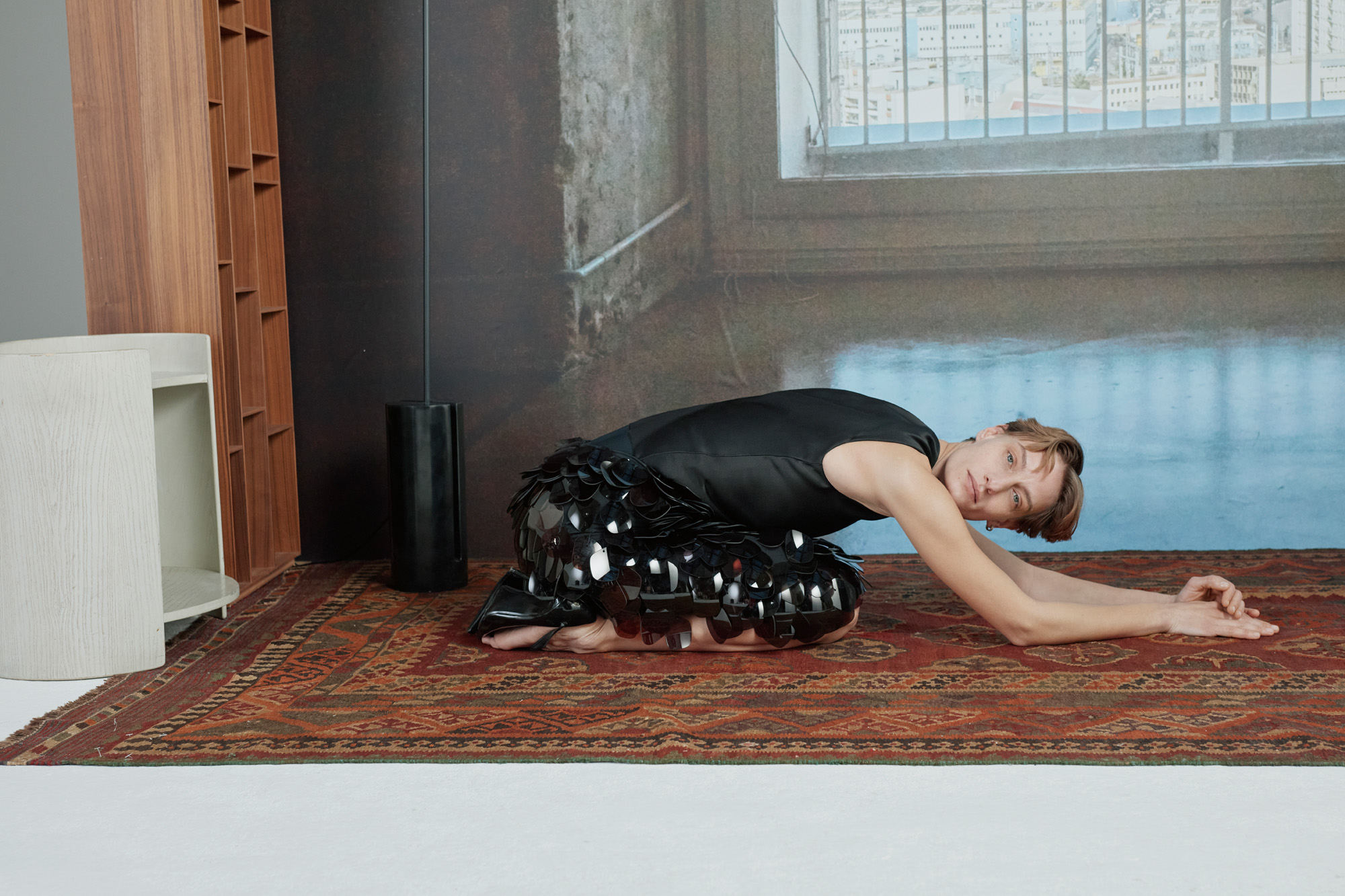 What one writer learnt in 2025 through exploring the ‘intimate, familiar’ wardrobes of ten friends
What one writer learnt in 2025 through exploring the ‘intimate, familiar’ wardrobes of ten friendsInspired by artist Sophie Calle, Colleen Kelsey’s ‘Wearing It Out’ sees the writer ask ten friends to tell the stories behind their most precious garments – from a wedding dress ordered on a whim to a pair of Prada Mary Janes
-
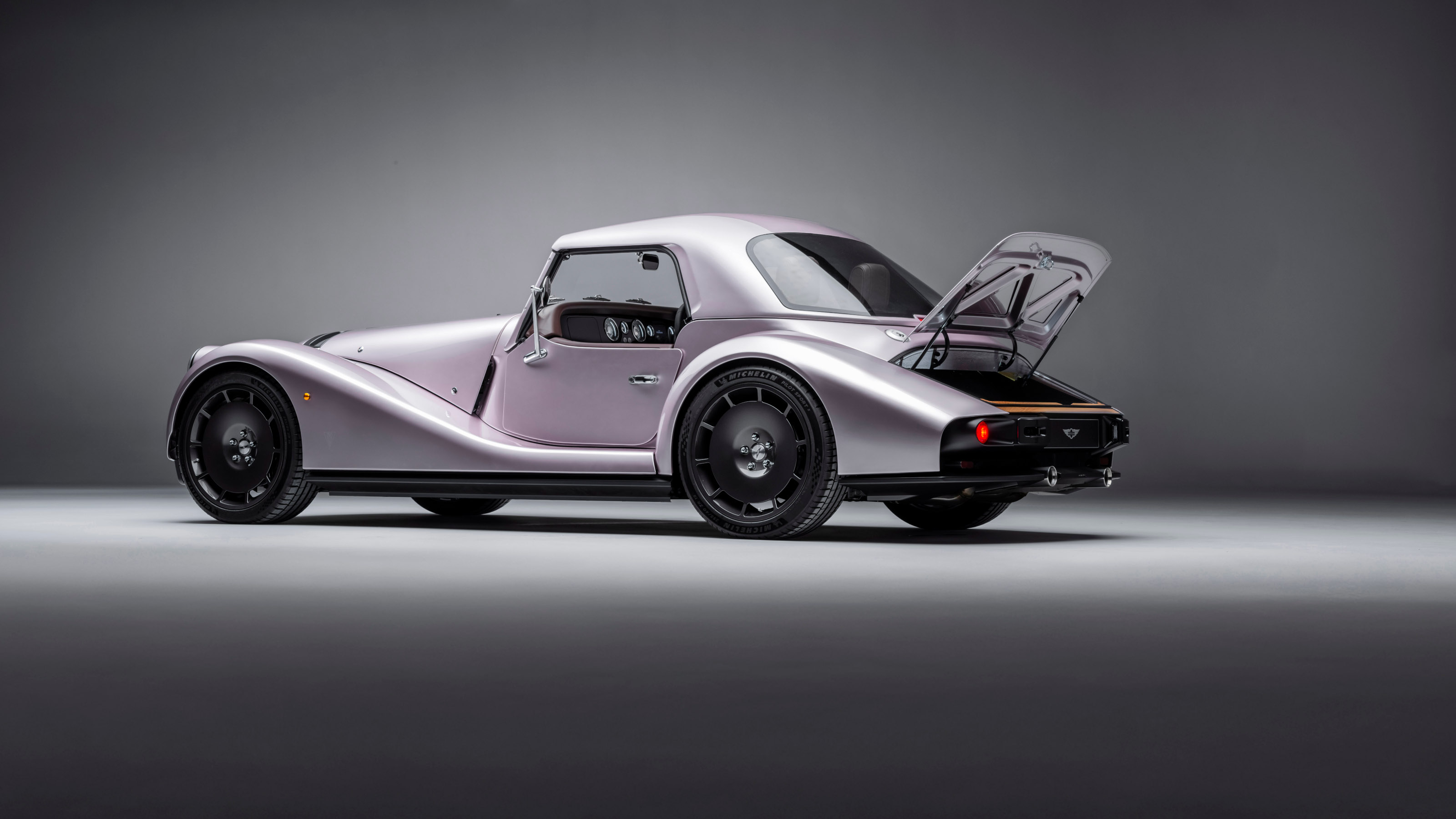 Year in review: 2025’s top ten cars chosen by transport editor Jonathan Bell
Year in review: 2025’s top ten cars chosen by transport editor Jonathan BellWhat were our chosen conveyances in 2025? These ten cars impressed, either through their look and feel, style, sophistication or all-round practicality
-
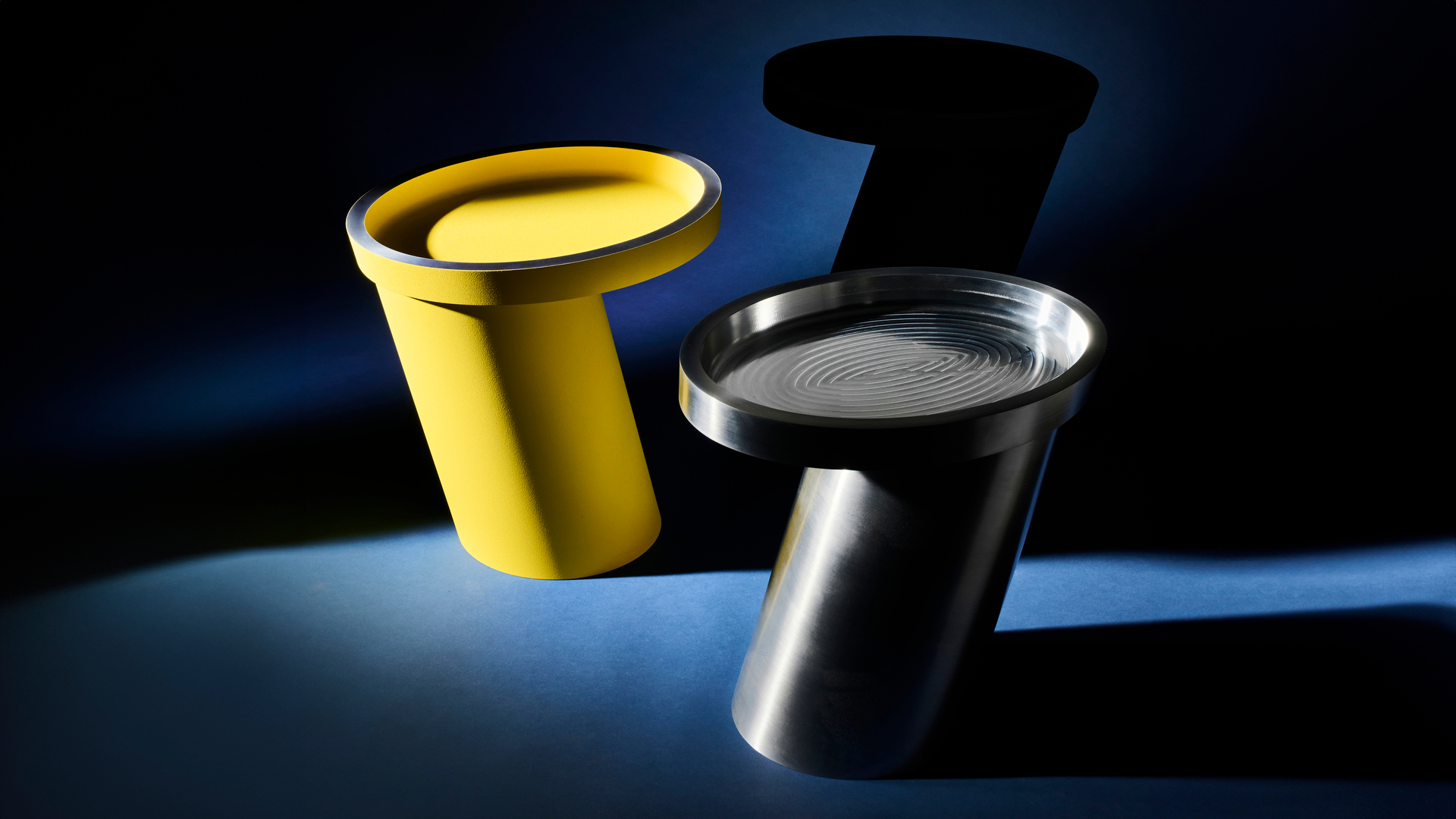 Eddie Olin's furniture that merges heavy metal with a side of playfulness
Eddie Olin's furniture that merges heavy metal with a side of playfulnessWallpaper* Future Icons: London-based designer and fabricator Eddie Olin's work celebrates the aesthetic value of engineering processes
-
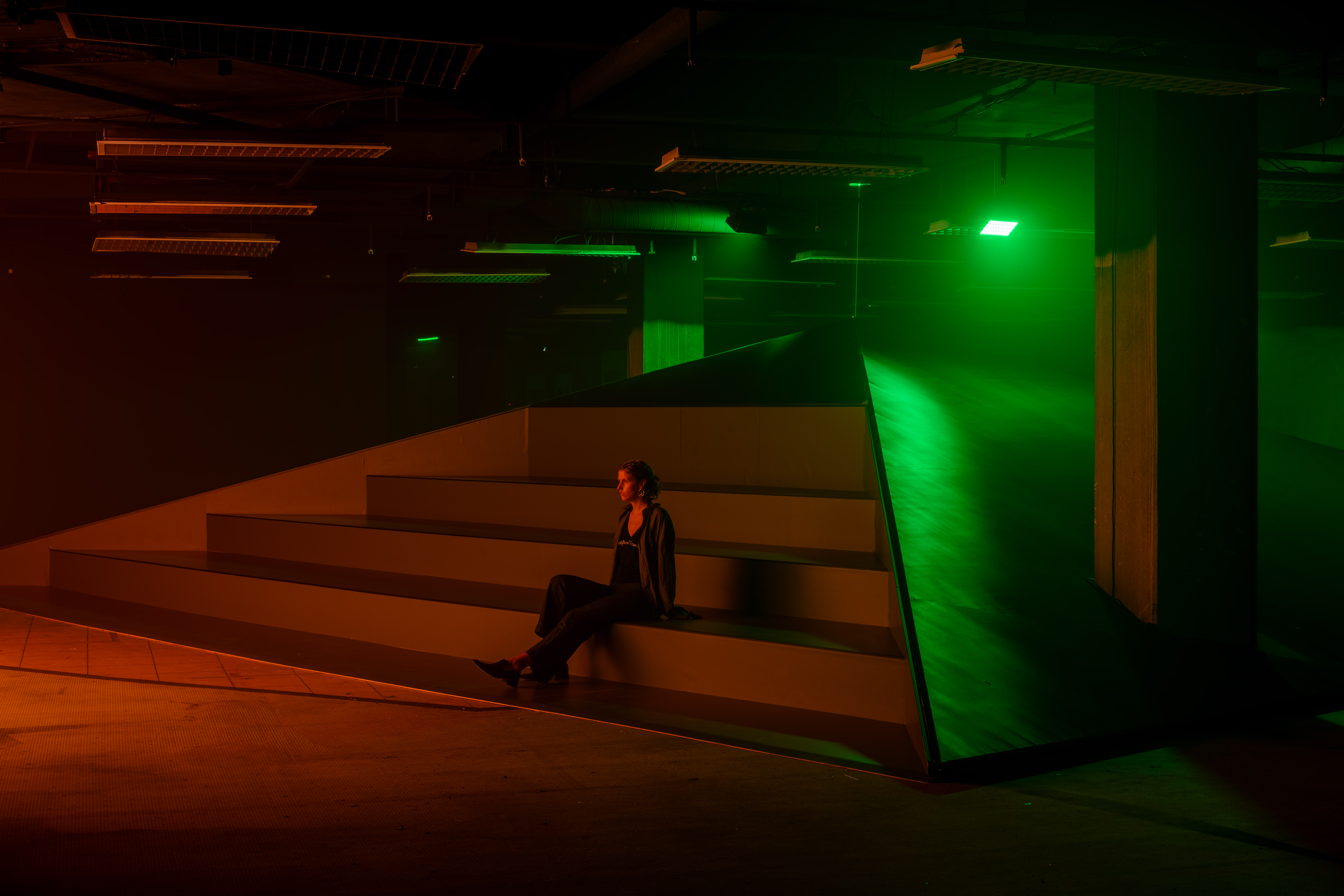 'There is no way light and darkness are not in exchange with each other': step inside Christelle Oyiri’s sonic world in Berlin
'There is no way light and darkness are not in exchange with each other': step inside Christelle Oyiri’s sonic world in BerlinIn an explosion of light and sound, Christelle Oyiri explores celebrity, mythology and religion inside CANK, a former brutalist shopping centre in Berlin’s Neukölln
-
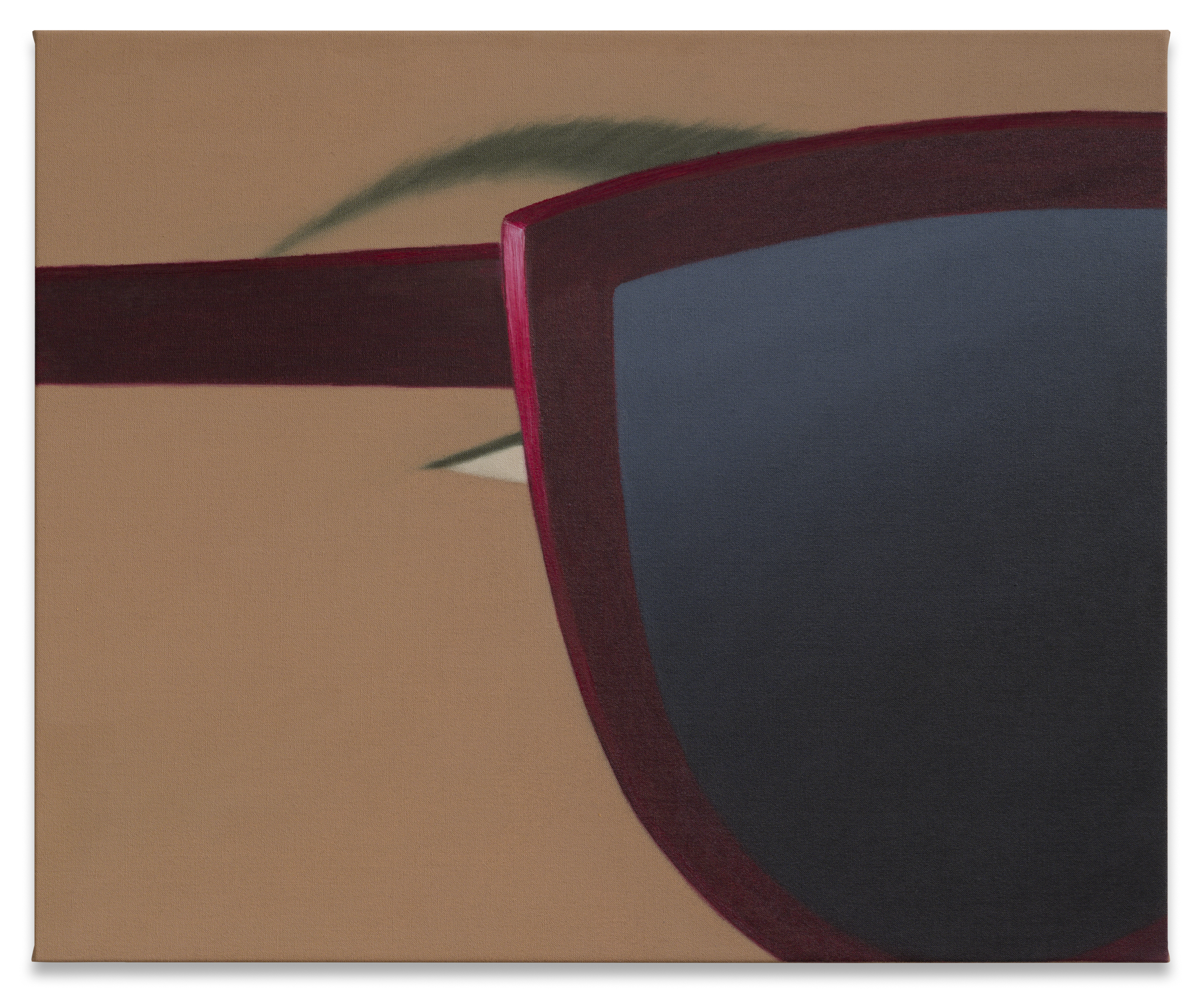 What's the story with Henni Alftan’s enigmatic, mysterious paintings? The artist isn’t saying
What's the story with Henni Alftan’s enigmatic, mysterious paintings? The artist isn’t sayingParis-based artist Henni Alftan's familiar yet uncanny works are gloriously restrained. On the eve of a Sprüth Magers exhibition in Berlin, she tells us why
-
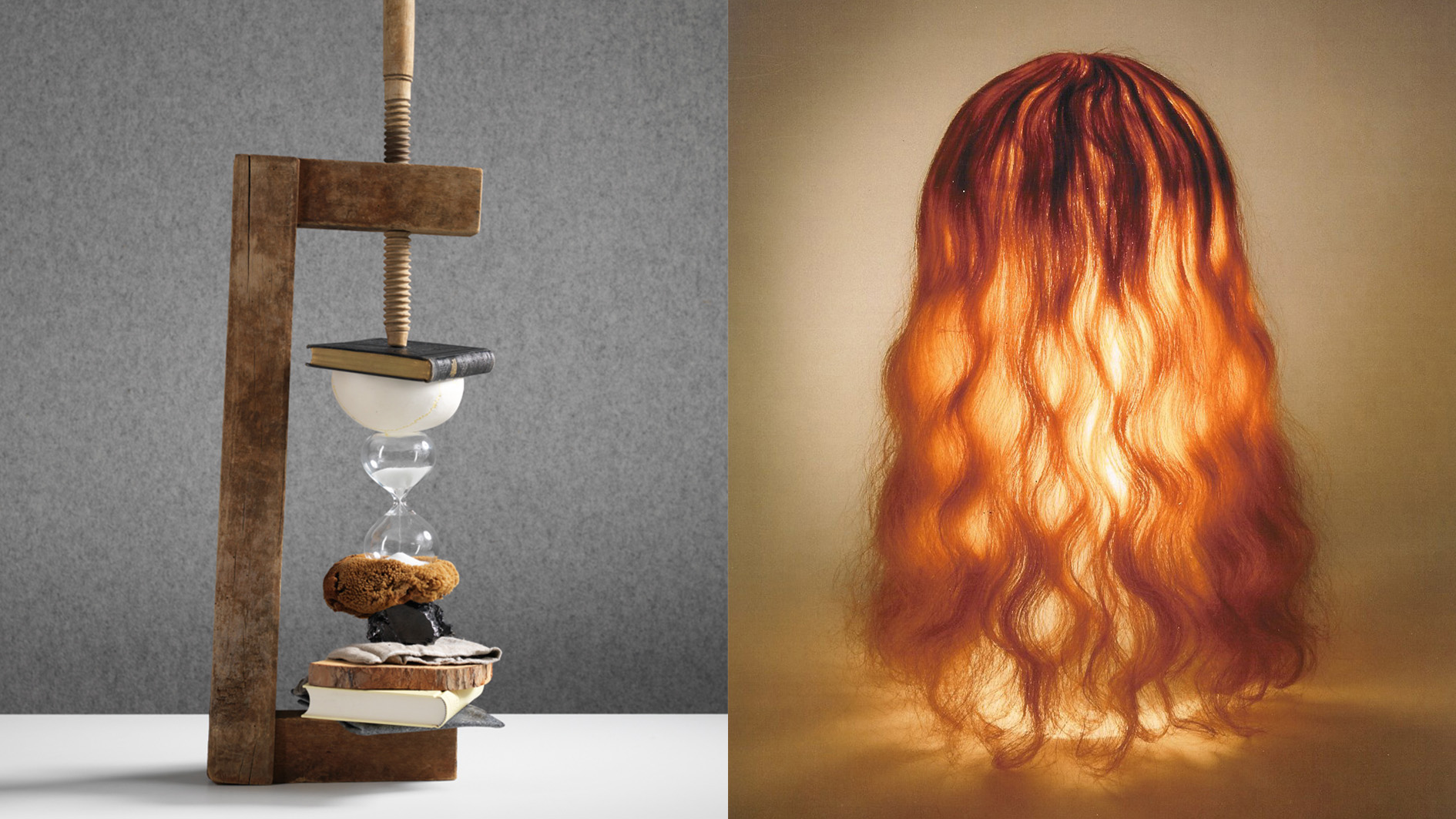 Rolf Sachs’ largest exhibition to date, ‘Be-rühren’, is a playful study of touch
Rolf Sachs’ largest exhibition to date, ‘Be-rühren’, is a playful study of touchA collection of over 150 of Rolf Sachs’ works speaks to his preoccupation with transforming everyday objects to create art that is sensory – both emotionally and physically
-
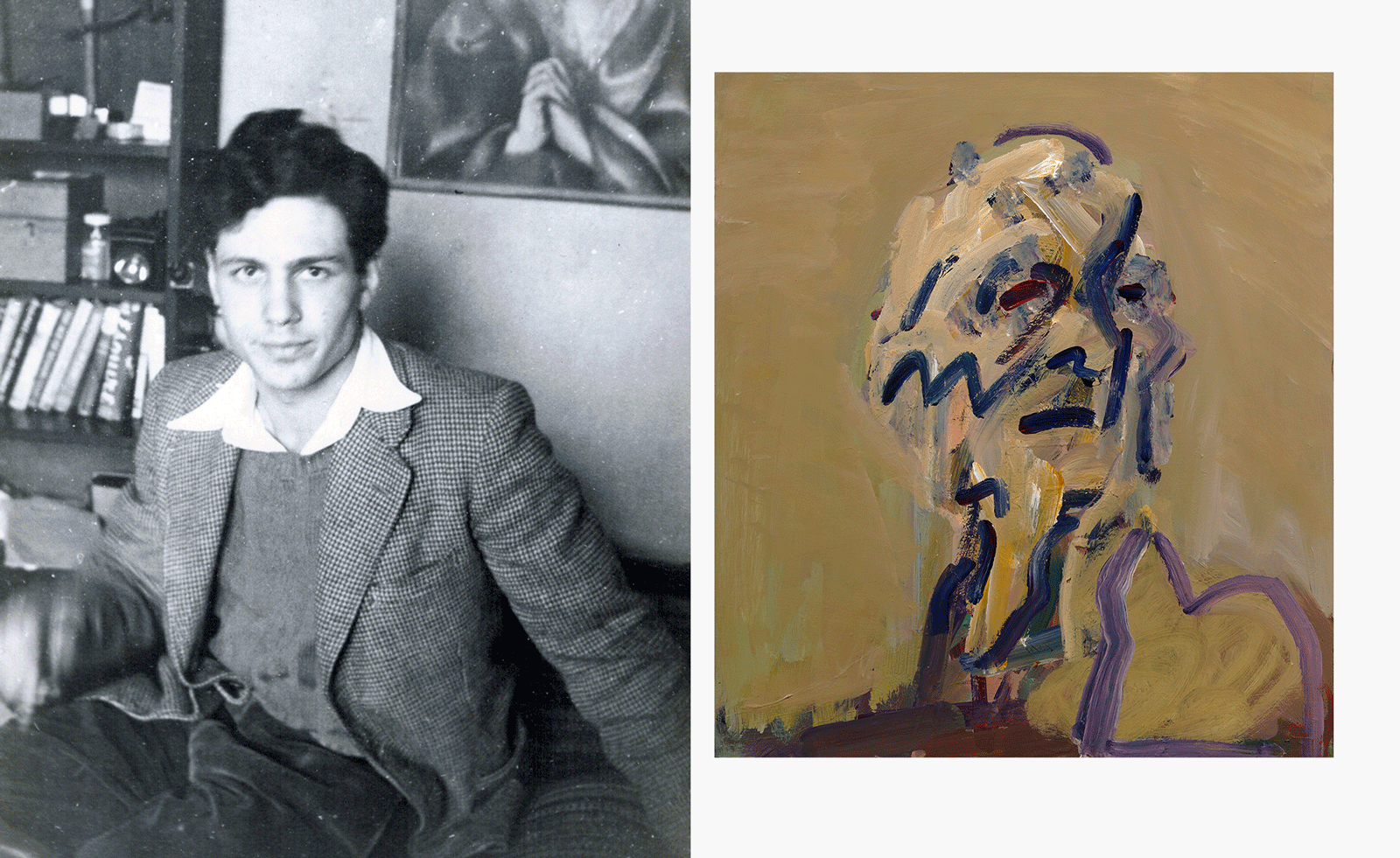 A posthumous exhibition in Frank Auerbach's home city of Berlin celebrates the work of the figurative painter
A posthumous exhibition in Frank Auerbach's home city of Berlin celebrates the work of the figurative painter‘Frank Auerbach’, on until 28 June at Galerie Michael Werner, Berlin, marks the first time the artist's work is shown in the city where he was born
-
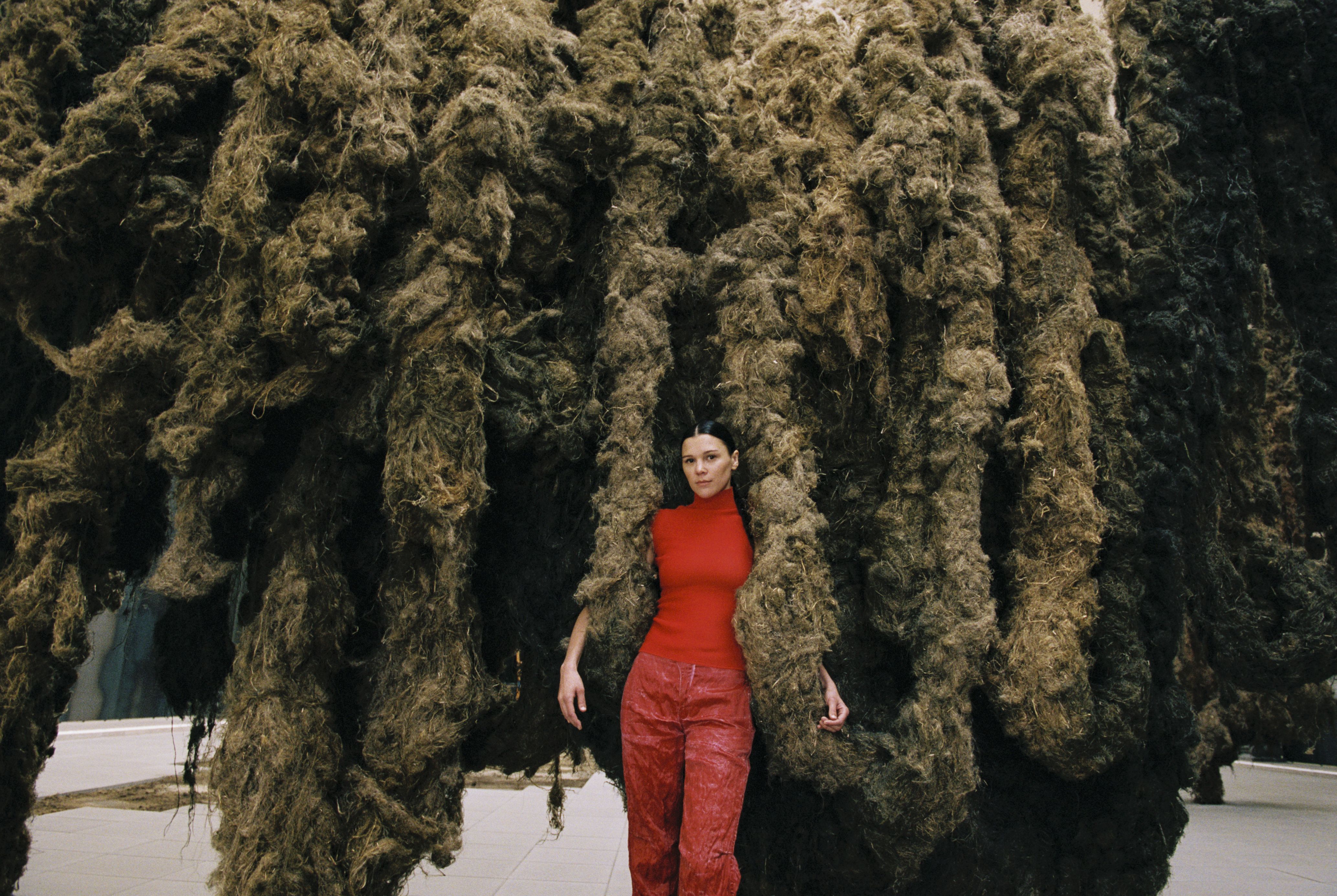 Klára Hosnedlová transforms the Hamburger Bahnhof museum in Berlin into a bizarre and sublime new world
Klára Hosnedlová transforms the Hamburger Bahnhof museum in Berlin into a bizarre and sublime new worldThe artist's installation, 'embrace', is the first Chanel commission at Hamburger Bahnhof
-
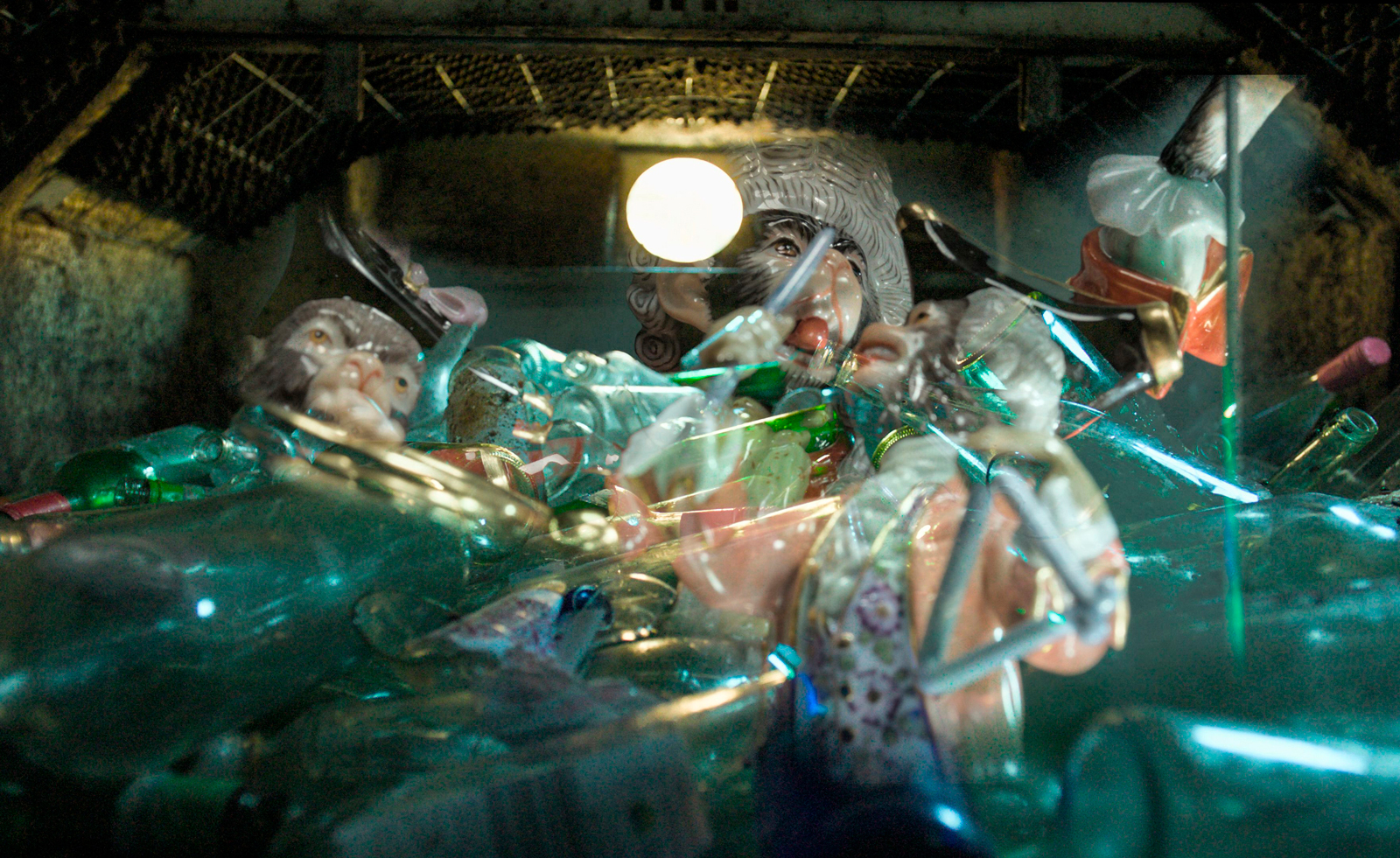 Thrilling, demanding, grotesque and theatrical: what to see at Berlin Gallery Weekend
Thrilling, demanding, grotesque and theatrical: what to see at Berlin Gallery WeekendBerlin Gallery Weekend is back for 2025, and with over 50 galleries taking part, there's lots to see
-
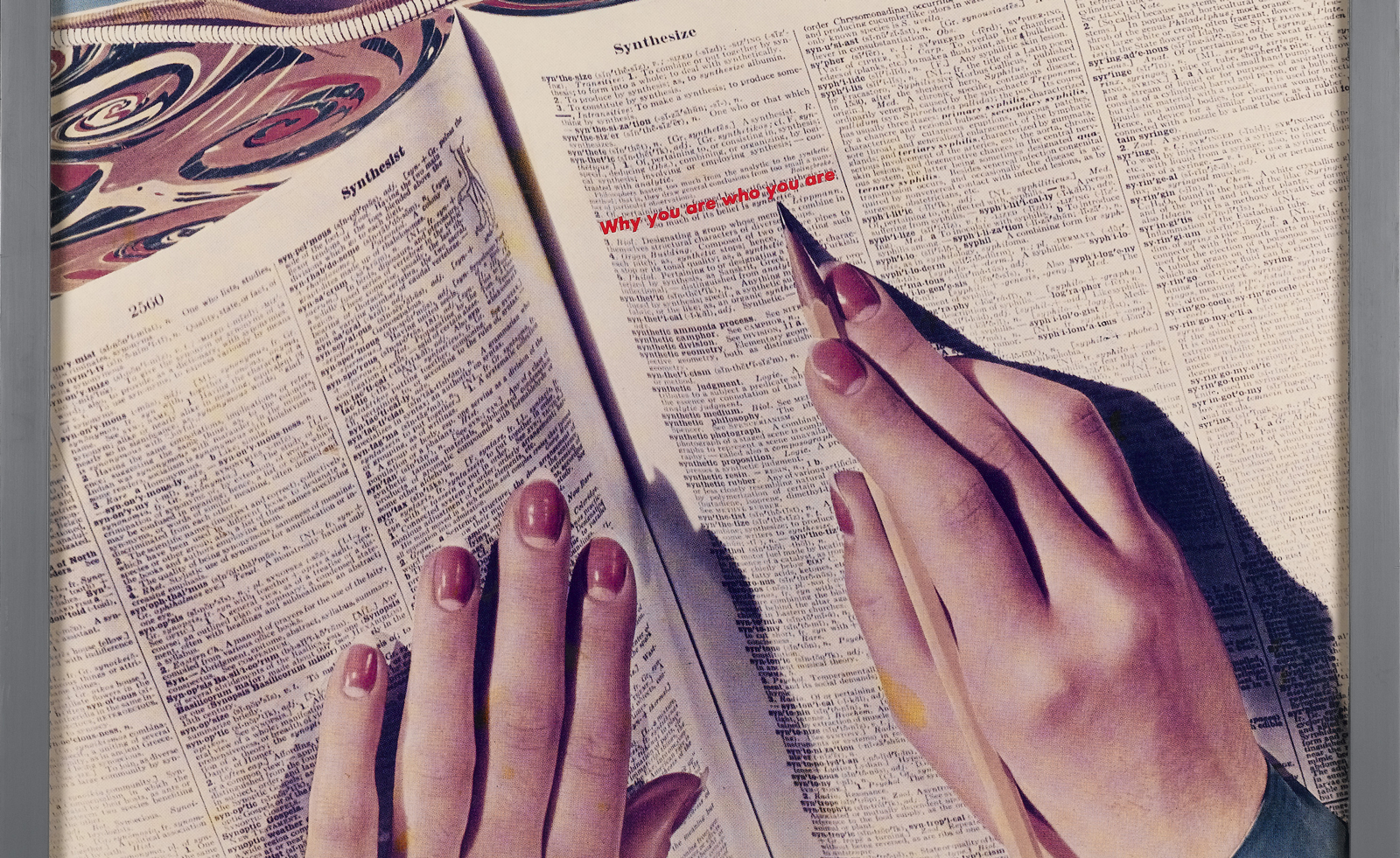 Take a rare chance to see the astonishing Ringier Collection of artworks in Düsseldorf
Take a rare chance to see the astonishing Ringier Collection of artworks in DüsseldorfFrom Barbara Kruger to Sylvie Fleury: publishing mogul Michael Ringier opens his private art collection to the public, sharing 500 works, and tells us what makes great art
-
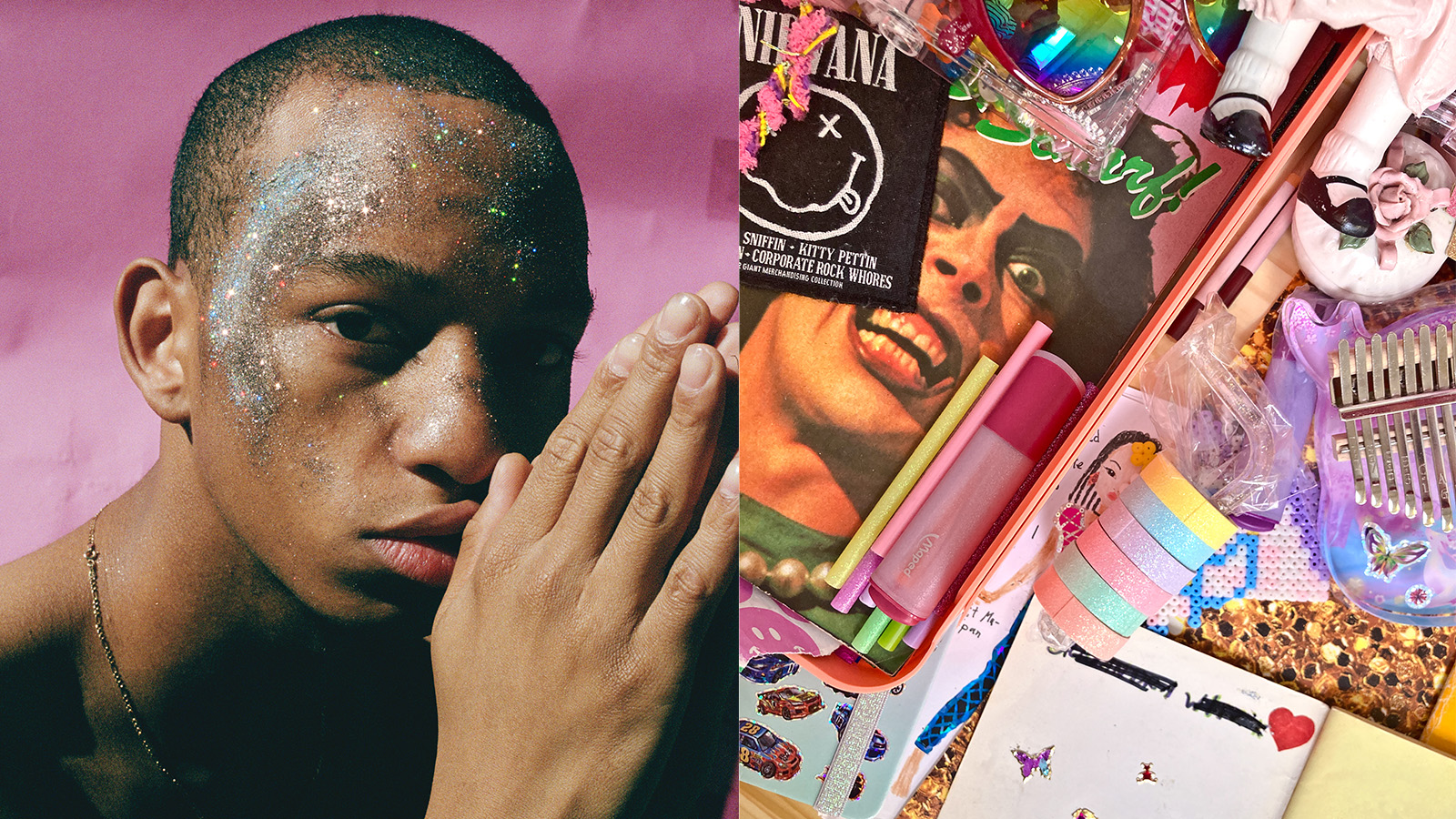 MK&G’s ‘Glitter’ exhibition: a brilliant world-first tribute to sparkle and spectacle
MK&G’s ‘Glitter’ exhibition: a brilliant world-first tribute to sparkle and spectacleMK&G’s latest exhibition is a vibrant flurry of sparkles and glitter with a rippling Y2K undercurrent, proving that 'Glitter is so much more than you think it is'